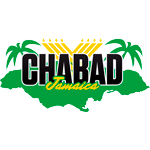
By Rabbi Yaakov Raskin
Chief Rabbi, Chabad of Jamaica
This year, the Jewish holiday of Hanukkah – also known as the festival of lights – has more significance than ever before. Beginning on Thursday, December 7 and running through December 15, the eight-day holiday commemorates the victory of the ancient Israelites over the Assyrian army, who conquered and defiled the Temple in Jerusalem, and attempted to compel the Jews to abandon their monotheistic faith and embrace the Greek polytheistic beliefs.
A small band of Jews known as the Maccabees revolted, miraculously defeating the Assyrian armies and regaining their freedom to worship G‑d according to the ways outlined in the Bible.
The Hebrew word Hanukkah literally means ‘dedication’, referring to the Temple’s rededication once it was reclaimed.
When the Maccabees entered the reclaimed Temple and sought to light the seven-branched candelabra known as the menorah – one of the key daily temple services – they found only one small jug of pure olive oil; the rest had been defiled by the enemy. While that oil was only enough for one day, it miraculously lasted for eight days – until more pure oil could be brought.

